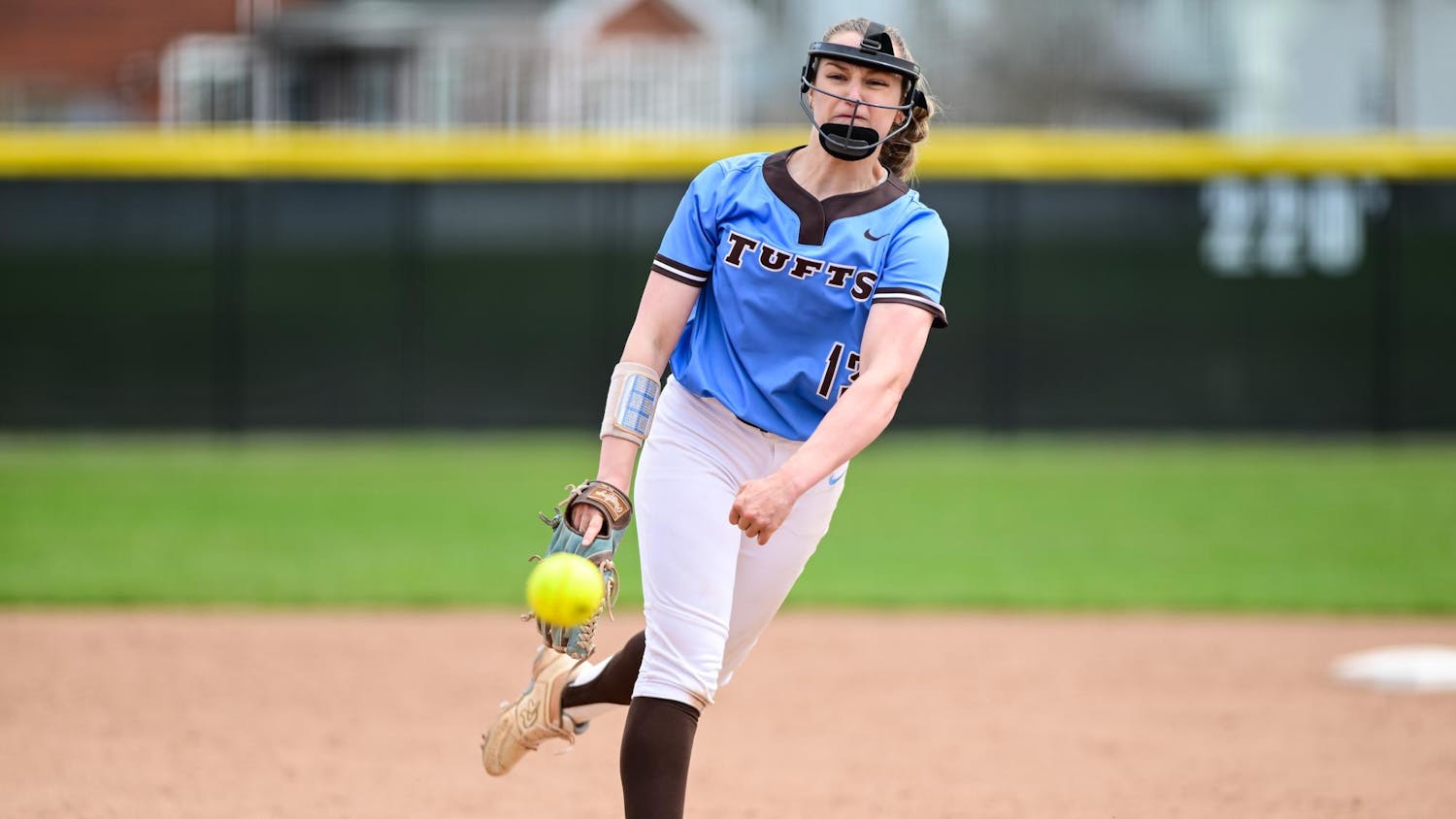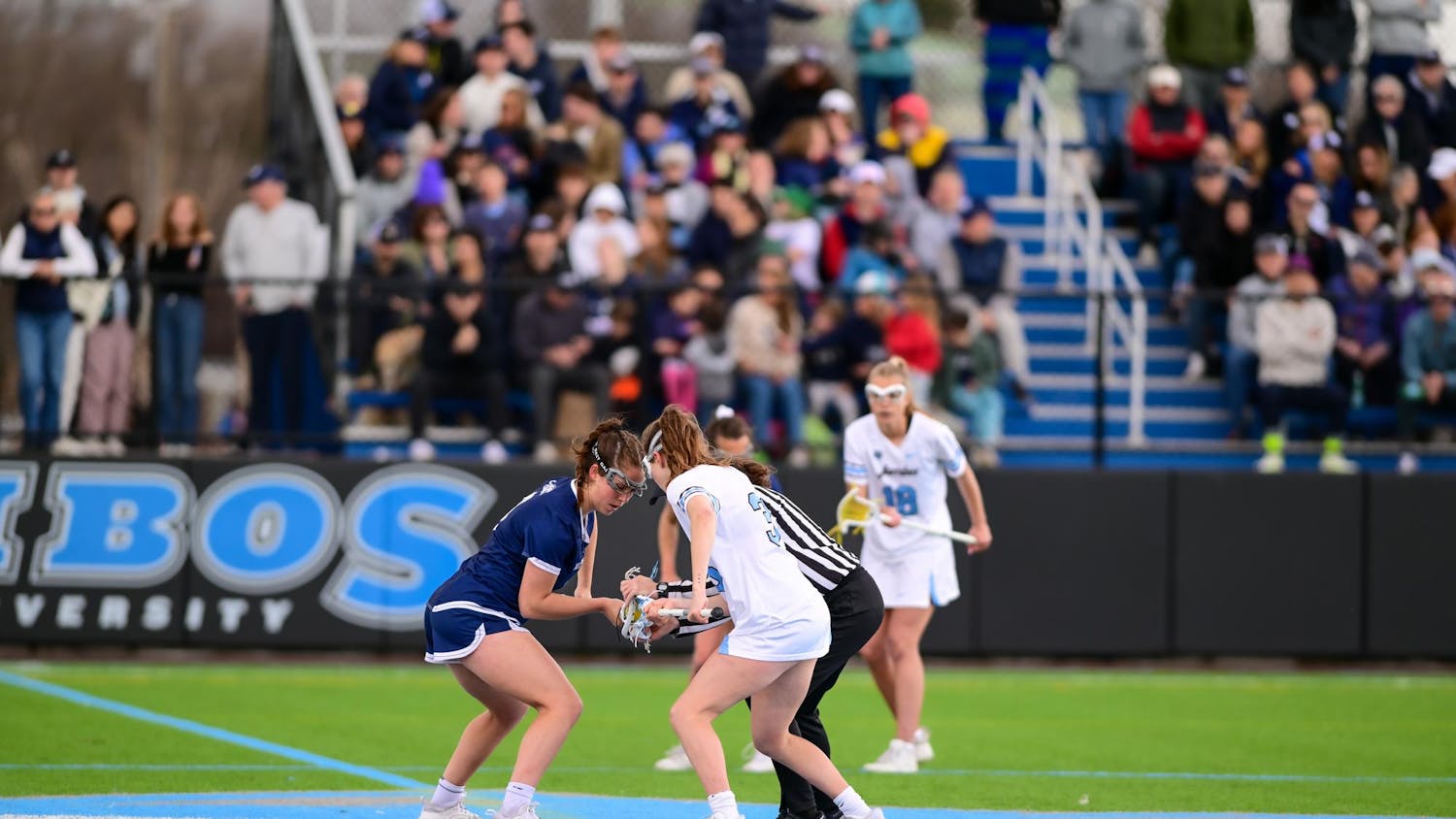Tonight, the top 16 teams will begin their chase for hockey's ultimate prize — the Stanley Cup. The next two months will be an emotional roller coaster, full of thrilling tension, drama, heartbreak and triumph. Stars will shine and new heroes will emerge amid some of the most compelling, high-flying hockey to be found anywhere in the world.
Sports cliches aside, for hockey fans and casual observers alike, the next two months are a real treat. Here are 10 reasons why:
10. It's epic — really:
To actually win the Stanley Cup, a team must win 16 games — four best-of-seven series. Sixteen games. Compare that with baseball, which requires 11 victories for a World Series title.
That's a ton of hockey, and a lot of time for some pretty incredible — or terrible — to happen. More than any other sport, hockey's postseason is a test of serious endurance, not just skill. The playoffs might start today, but there won't be a Stanley Cup champion before June. No wonder they call it the "second season."
9. Star power:
Pittsburgh Penguins forward Sidney Crosby may be indefinitely sidelined with concussion symptoms, but the vast majority of the league's top stars have found their way into this postseason. A player can shine in the regular season, but the Stanley Cup Playoffs are the true test of a player's impact. Can they show up when it matters most?
Washington Capitals forward Alex Ovechkin and San Jose Sharks forward Dany Heatley have been called two of the league's premier players, but their detractors point to a legacy of postseason letdowns. Only one thing can silence the doubters: playoff success.
8. The unlikely heroes:
Sure, everyone expects Crosby or Chicago Blackhawks forward Patrick Kane to put their team on their back and lead them to victory. But what about John Druce?
"Who?" is the correct answer to that question. Druce was a quiet player: a winger for the Washington Capitals and a modest offensive talent at best. But in the 1990 Stanley Cup playoffs, Druce suddenly exploded. He scored 14 goals in 15 games, including four game winners, and the Caps reached the conference finals. That's the great thing about the playoffs — you never know who's going to come out of nowhere and change the fortunes of an entire team.
7. Playoff beards:
It's an age-old hockey tradition — once the regular season ends, players won't pick up a razor until after their team is eliminated. Maybe it's just superstition, but there's no easier way to know it's playoff time than to pick up the sports section and see what appear to be a bunch of cavemen celebrating on the ice.
As the beards get bushier, the playoff tension ratchets up and some truly legendary facial hair emerges — witness Scott Hartnell of the Philadelphia Flyers or the veteran Scott Niedermayer's gray-and-black beard.
Others take an alternative approach; Kane instead sported a "playoff mullet" last year. His team brought home the Cup. Unsurprisingly, Kane announced on Monday the mullet will return for this year's playoffs.
6. Rivalries
This week, it's not about Yankees-Red Sox here in Boston. It's all about Bruins-Canadiens. One of the bitterest NHL rivalries, the Boston-Montreal hatred — and hatred is not an inappropriate word — goes back to the days of the Original Six.
That tension has only been heightened by the now-infamous March incident in which Bruins captain Zdeno Chara brutally checked Canadiens forward Max Pacioretty into the half-wall near center ice, resulting in a fractured vertebra and a severe concussion. Pacioretty has not played since.
Chara escaped suspension from the league for that hit, which was deemed unintentional. But don't expect Montreal — or its fans — to be quite so forgiving. In either arena, it's going to be a hostile atmosphere this week.
5. Unreal goaltending:
This is not to say that playoff hockey is low-scoring or boring — far from it. But goaltenders, more than any other position on the ice, have the potential to take over a game, a series or even the whole playoffs. Ask any Penguins or Capitals fan about goaltender Jaroslav Halak whose jaw-dropping play was instrumental in the Montreal Canadiens' unlikely ousting of both those clubs last season.
4. The atmosphere:
Stanley Cup fever takes over entire cities, starting with the arenas themselves. There is nothing quite like the inside of an NHL arena come playoff time. It's rock-concert loud and the building shakes with every goal, hit or save.
The atmosphere — especially in some of the bigger buildings like Montreal's Bell Centre — is electric, even if you're just watching on TV. It's a big reason why it's very easy to get wrapped up in the emotional aspect of it all.
3. Upsets and comebacks:
In 2009-10, the Bruins — the top team in the East — jumped out to a commanding 3-0 series lead in the Eastern Conference Semifinals over the Flyers. But Philly battled from behind to even the series at three apiece, then came from three goals down in Game Seven to win the series. That sort of thing can happen in the playoffs — with emotions and tension running so high, no lead, or series lead, is safe. So stay tuned until it's over, or you might just miss something.
2. Sudden-death overtime:
The regular season has gone to a four-on-four, five-minute overtime that culminates in a shootout if teams are still tied. But in the playoffs, tradition still reigns supreme. 20-minute overtime periods — the same as a regular period — are played at full strength for each side and the game doesn't stop until someone scores a goal.
Is it brutal? Probably. Is it compelling? Certainly. The longest playoff game in NHL history featured an additional 116:30 — six overtime periods — of added time, when the Red Wings defeated the Montreal Maroons, 1-0, in 1936. That's almost three continuous hours of hockey.
1. The Stanley Cup:
There could be no better reason to watch than the very reason the players play, right? The Stanley Cup is the greatest trophy in professional sports. Even if you don't know hockey, you know about the Cup. The names of every single player and coach ever to lift the cup are etched into the trophy's rings, and the Cup has legends all its own — like when it ended up at the bottom of a Pittsburgh swimming pool during a Penguins victory celebration in 1991.
The Cup is so important to hockey culture that a Hall of Fame employee is tasked with keeping watch over the Trophy at all times, supervising it and transporting it to games and other appearances. It's the representation of everything that's great about the sport, and there's no sweeter moment than watching someone lift the Cup — especially if it's your team. So stay tuned this playoff season, and you might be lucky enough to see it happen.





